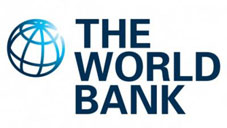
The World Bank publishes new report on human capital in Georgia
By Liza Mchedlidze
Friday, October 21, 2022
The World Bank publishes a new report on human capital in Georgia. The report on Georgia states that in the last decade, Georgia's economy has grown significantly, while poverty has decreased. However, there are challenges that could slow Georgia's path to long-term, shared prosperity.
Among such problems, the World Bank cites inequality, an aging population and a labor market that is still weak, especially for young people.
"High migration rates exacerbate the challenges already posed by an aging population." There is less labor left to support the country's growing number of elderly people.
Economic growth and prosperity are unevenly distributed, with many people and regions benefiting disproportionately from them," the World Bank report said.
According to the World Bank report, before the start of the coronavirus pandemic, the unemployment rate in Georgia was one of the highest among the countries of Europe and Central Asia. A large proportion of people are engaged in low-income and precarious work - half of the workforce is employed in the informal sector.
"Furthermore, the labor market opportunities for young people remain difficult. A disproportionately large number of young people who want to work (one in four in the 15-24 age group) are not in employment, education or training. The youth unemployment rate reaches 30%.
Youth inactivity and unemployment have long-term negative effects, as they prevent young people from gaining the necessary experience, send negative signals to potential employers, and may further hinder their job search," the World Bank wrote.
According to the World Bank report, the aging of the population in Georgia is accelerated by migration along with the accompanying effects of economic development.
"The challenge of an aging population is exacerbated by high rates of emigration, mainly for people of working age: this further reduces the size of the labor force.
Therefore, it will be essential to increase the skills and productivity of the remaining workforce to cope with the growing number of elderly people on the one hand, and to manage migration on the other hand," the World Bank report said.
The World Bank report also includes the GIN Index, which shows the existing inequality in the country. According to the GIN index, Georgia is among the most unequal countries in Europe and Central Asia.
As the World Bank writes, inequality in Georgia appears at an early age and is related to many characteristics, such as ethnicity and gender, although it is also observed from the point of view of regions - in the poorest regions, not only are there more people in need, but it is also a challenge to provide quality services.

